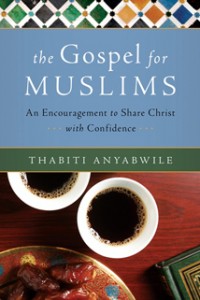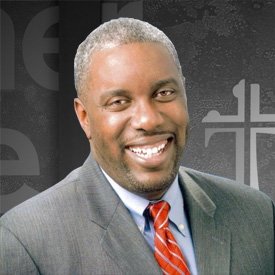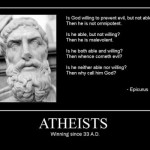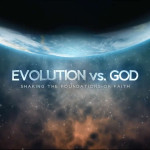There is something interesting that happens as Christians when we approach and study other faiths. I have found it to be the norm, rather than the exception, that we approach other faiths without grace or applying the gospel. Instead, we just look for intellectual karate-chops, ways that we can try and force people to show them they’re wrong in conversation with quick and succinct blows.
As Christians, our language and conversation with others should be completely full of love and grace. Let your speech always be gracious, seasoned with salt, so that you may know how you ought to answer each person (Col 4:6).
This is why I loved reading Thabiti Anyabwile’s recent book The Gospel for Muslims: An Encouragement to Share Christ with Confidence. To be honest, when I first approached this book I slipped back into my default mode. From the outside, Thabiti’s book is very short, and I initially approached it hoping for quick and easy ways to “win” arguments against Muslim followers. What I received instead was a great primer on the gospel, my need for Jesus, and how that needs to be the center of any conversation I have with a Muslim follower. Despite a few shortcomings that I will detail below, The Gospel for Muslims is a fantastic book for any church or Christian looking for an introduction to Christian-Muslim interfaith dialogue.
Praise
As a former Muslim believer, Anyabwile is well aware of the Islamic though process and its doctrines. It is his background and conversion experience that has given Thabiti the heart to write this book, and that is evident on every page. Pastor Anyabwile really believes, as we should all believe, that we are to serve our Muslim neighbors and be salt and light to them.
The strongest point of Pastor Anyabwile’s book is its emphasis on the gospel and the need for the gospel in any and all conversations with Muslim believers. This is not an apologetics book, and it is not intended to be so. As Anyabwile says in his introduction, “Apologetics is a helpful discipline, but it is not evangelism” (p. 14). The books primary focus is encouraging Christians to believe that the gospel really is the power of salvation to all who might believe. This is where Thabiti is at his strongest, encouraging even the newest believer that they know what they need to engage a Muslim follower.
Divided into two parts, the first part of the book focuses on the gospel itself. This is a primer for the most learned or unlearned Christian, succinctly hitting all the key points of our faith on God, man, Jesus, repentance, faith, etc. The second part of the book contains practical suggestions with Muslims.
This second part of the book contains some very helpful tips that I really think are crucial for the church today. In chapter 8, Pastor Anyabwile focuses on the necessity to be hospitable in our conversations with Muslims. This may sound elementary, but isn’t it something that is really hard to do – especially in heated conversation?
The following chapter focuses on using your local church to reach out to your Muslim neighbors. As a member of a relatively new Acts 29 church, I really loved this chapter and that Thabiti would think to include it. Though short, this chapter contains a lot of helpful encouragement and advice for the local church in reaching it’s Muslim neighbors.
Pastor Anyabwile also includes a helpful chapter on reaching the African American Muslim community. As an African American and former Muslim, Anyabwile speaks with grace in regards to this issue and I found the chapter to be very helpful.
Criticisms
On the whole, I loved The Gospel for Muslims, Pastor Anyabwile’s heart for that community, and the centrality of the gospel on every page of the book. There is however one criticism I would offer for the book. Even though my criticisms are few, I do believe there is one fairly serious issue worth noting in the text.
Thabiti makes a few statements throughout the book in regards to a Muslims approach to the Bible. He correctly states that many (if not all) Muslims believe that the Bible is completely corrupted in its current state, yet he incorrectly states that they have no reason to believe as such.
One of the greatest problems in approaching the Quranic text is that it is not wholly unified in any sort of narrative or exhortational fashion. The Qur’an is broken up into chapters, or suras, which were received by Mohammad throughout his lifetime in various revelations. Muslim scholars do their best to try and figure out which verses (ayats) came before others, but there is much disagreement. Complicating this issue is the Islamic doctrine of abrogation (nasikh). This doctrine states that when two verses conflict, the most recent verse abrogates – or overwrites – the previous verse. This is seen best from the Qur’an itself:
2:106 None of Our revelations do We abrogate or cause to be forgotten, but We substitute something better or similar: Knowest thou not that Allah Hath power over all things?
13:39 Allah doth blot out or confirm what He pleaseth: with Him is the Mother of the Book.
Thabiti is correct when he references the Qur’an as stating at times that Muslims should be in agreement with Christian or Jewish teachings. One such Sura Thabiti references is below:
5:46-47 And in their footsteps We sent Jesus the son of Mary, confirming the Law that had come before him: We sent him the Gospel: therein was guidance and light, and confirmation of the Law that had come before him: a guidance and an admonition to those who fear Allah. Let the people of the Gospel judge by what Allah hath revealed therein.
Pastor Anyabwile’s conclusion is that we should then work to convince our Muslim neighbors that they must listen to our Bible because their Qur’an says so, and that there actually isn’t any grounds in the Qur’an for Muslims to say the Bible is corrupted. However, a quick gloss of Quranic text would give us a different result:
3:78 There is among them a section who distort The Book with their tongues: (As they read) you would think It is a part of the Book, But it is no part Of the Book; and they say, “That it is from Allah”, But it is not from Allah.
2:113 The Jews say: “The Christians Have naught (to stand) upon”; And the Christians say: “The Jews have naught (to stand) upon.” Yet they (profess to) study the (same) Book.
5:14 From those, too, who call Themselves Christians, We did take a Covenant, But they forgot a good part of the Message that was Sent them: so we estranged them…
The above verses are a brief synopsis of texts that Muslims interpret to say that the Bible is corrupted and that Christians use false texts. This rightly is in disagreement with the Sura Thabiti quotes in his book, but that is not a conflict because of the doctrine of abrogation.
Anyabwile hits on this idea a few times in the book, and I fear the consequences of not appropriately fleshing out this subject in the book. Not only that, I’m afraid his conclusion is simply or prematurely wrong, and that it will convince many readers that they can show their Muslims neighbors to believe in the Bible because their Qur’an says so.
Conclusion
I loved The Gospel for Muslims. It was short, simple, and to the point. The book was a great encouragement and reminder that the gospel must be at the center of our evangelistic efforts.
However, the few issues I have with the book are glaring. As the book is short and is not meant to fully flush out Islamic doctrine, I think Pastor Anyabwile gets the issue of the Islamic perspective of the Bible completely wrong, or at least not fully examined. In addition, since the text is so short, there really wasn’t much room to elaborate on some key Islamic doctrines. I really think the book might’ve benefited from an extra 20 pages spread throughout the book to provide a few more details and insights into Islamic beliefs.
There are a few caveats to keep in mind, and The Gospel for Muslims might best be used with some additional resources and information compiled from other sources. Despite what might be a few shortcomings, this is a book I would definitely recommend to others and use in the future when teaching or discussing Islamic evangelistic efforts.





Dear Ben,
Thanks so much for reading The Gospel for Muslims and for taking the time to review it. I appreciate the investment you made and the substantive engagement you offer here. The Lord bless you for it!
On the issue of the Muslim view of the Bible and abrogation, I would say two things.
First, we should keep in mind that not every Muslim holds to the same view of abrogation or even that abrogation is entirely without problems itself. What does it mean, after all, to say that a perfectly omniscient God gave a sign/revelation at one point that would be insufficient to the point of abrogation at another point in time? That’s an important intra-Muslim debate along with a kind of Qur’an-only debate.
Second, I would say to any Muslim citing the texts that you mentioned that none of those texts support the idea that the biblical text itself was distorted. They claim that some “distort… with their tongues” (a reference to oral teaching, not the text of Scripture), “forgot a good part of the Message” (a problem with memory, not the text), or that Christians and Jews disagree on interpretation (which cannot be denied, but again is a matter of interpretation not transmission or purity of the text). I think you’ll be hard pressed to find a Qur’anic reference that alleges the text of Scripture itself has been falsified or corrupted. This is an important distinction and is why in my own apologetics/evangelism I try to make this clear to my Muslim friends while also pointing to the numerous passages where the Torah, Zabur, and Injyl are affirmed as signs by the prophet himself.
Again, thank you for the substantive engagement. I don’t get to kick these things around nearly as much as I’d like. You’ve blessed me with such an opportunity today. The Lord bless you and keep you!
Your brother,
Thabiti
Pastor,
Humbled again that you would even take the time to interact with the article. This interaction means a lot during my grooming and learning process!
I am more-or-less in agreement with the two points you brought up, and I think we would be in agreement in stating the issue is…complicated. The doctrine of abrogation in itself is hard to understand and I’ve found to be very subjective. I went to a mosque in the Spring and sat with three different Imam’s and got three different answers to the same question.
As for the referenced texts, I agree they don’t clearly state the text itself is corrupted. However it is my understanding, and also my finding, that Muslisms often hold commentaries on the text as near-authoritative (not to mention the hadiths, which I didn’t consult on this subject but I’m sure they have something to say on this).
I might liken it to (although this analogy isn’t without faults) the fact that the Bible doesn’t explicitly use the word “Trinity.” My Muslim friends have often brought this up, which then leads me to walking them through the text and showing them how the Bible teaches a Triune God. Similarly, while we might say the Qur’an doesn’t explicitly say the Bible is corrupted, they could very well walk us through various texts and conclude a corrupted Biblical text.
I often refer to Yusuf Ali’s commentary as a first resource for understanding various things in the Qur’an, and his commentaries on these verses do suggest a conclusion that the Bible itself is corrupted.
However, Ali also errs significantly when he suggests that we don’t have manuscripts of the OT that date any earlier than 916 A.D., or any relevant NT manuscripts. I have often found it helpful in my Muslim dialogues to correct this assumption and talk with them about our very dated yet agreeable OT texts, or talk about our earliest manuscripts of the gospel of John, etc.
I guess my fear is over-simplifying this issue. I’m afraid an over-simplification might lead some Christians to run into a conversation without fully understanding its complexity. And, just like we don’t like it when non-believers try to tell us what the Bible says, I try to recommend staying away from telling Muslims what their Qur’an says.
Again, I am thankful for the dialogue (whether or not you respond) that you’ve offered despite your busy schedule. I really loved the book, and if we do a Muslim-evangelism course at our church I’m pretty sure this would likely be the text we’d use. It is a welcome addition to many of the much more apologetic-only or textbook approaches to Islam. I am very grateful for it!
Hey bro,
I’m happy to have the convo. As I said, I don’t have nearly enough of these exchanges to satisfy my interest :-). So, it’s a blessing to chat.
You know, it is interesting to observe Muslim debates about the use of commentaries and Hadith. There’s a Muslim version of what we Christians sometimes witness in the King James Only debates. It’s not quite the same, but you have Muslims who argue all you need is the Qur’an and then you have Muslims who argue you can’t understand the Qur’an apart from the Hadith. And the latter, as you point out, assign these sources a status and authority near revelation itself.
Have you read James White’s book, What Every Christian Needs to Know about the Qur’an? I found it an immensely helpful contribution to this kind of discussion.
Thanks again for the kind words about the book.I really appreciate them. The Lord bless and keep you!
T-
Pastor,
Agreed, it is interesting the many different angles and approaches that can be encountered as it pertains to the authority-hierarchy of the Qur’an, commentaries, and hadiths. I often have to begin conversations with many probing questions just to figure out where exactly they come from (going back to my day with the three Imam’s, two were Qur’an only but the third and head Imam trumped the Qur’an with a hadith).
I haven’t read Dr. White’s book, but perhaps I will make that my new Islam book to interact with. I’m trying to read one every few months or so, as the DC area where I live is relatively saturated with Muslims (or at least post-modern we-are-all-the-same-types). My background is definitely from more of a classroom/textbook approach from my classes on the subject matter at RTS. To be honest, I’m a little skeptical of some of the more Apologetic or tit-for-tat approaches to interfaith dialogue, as I’m a much bigger fan of reading the original texts and developing an understanding that is adaptable and more relational (one of the reasons why I loved your text in particular was its emphasis on relational conversation). Our professors emphasis in our missions/Islam classes has always been to 1) have a heart for the lost (otherwise you have no business in the conversation) and 2) developing a thorough understanding of the subject matter. That isn’t to say Dr. White’s or JD Greears book, etc. aren’t on my radar, they just haven’t been my go-to. It looks like I’ll have to bump up Dr. White’s book though!
Super thankful for this conversation, it is a real encouragement.